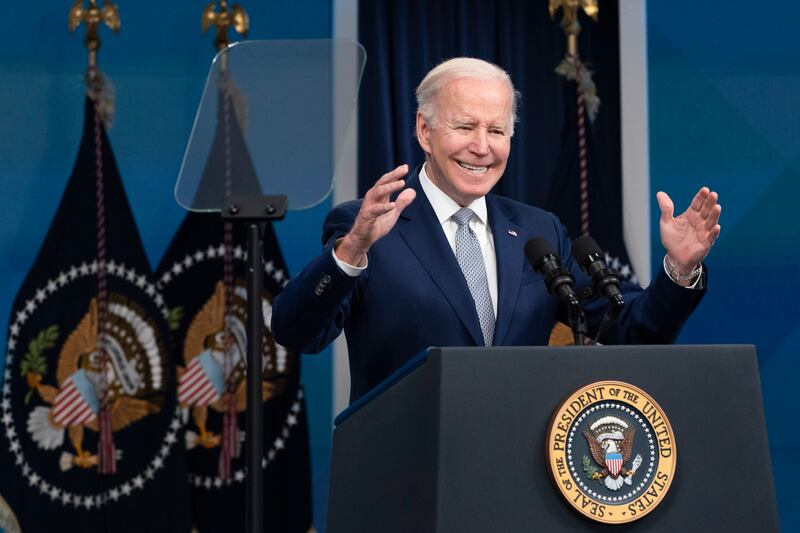Nearly two years ago, I suggested a political truism: No leader looks good in a pandemic.
Now I can add another. No leader looks good during a time of high inflation.
A key difference exists, however. The pandemic has made politicians look bad because strategies, outcomes, viral mutations and public reactions are so unpredictable. We ran out of patience with masks and social distancing just in time for the omicron variant. Some lawmakers, in Utah and elsewhere, looked foolish trying to pretend they knew more than doctors.
Inflation is different, though. Experience has taught us the answers.
You wouldn’t know that by watching President Joe Biden on Tuesday, as he blamed everyone from “MAGA” Republicans to Vladimir Putin, greedy corporations and the pandemic for runaway prices. He touted his own spending plan for reducing the deficit, something several economists refuted in a piece by factcheck.org last month.
It’s hard to blame him too much. Every president has sounded more or less like this during inflationary times. Gerald Ford handed out WIN buttons, for “whip inflation now,” and told people to economize. High prices don’t respond to lectures or gimmicks.
If any of the blame that Biden flung haphazardly on Tuesday stuck to the wall, it was the one directed at President Donald Trump and the Republicans who controlled Congress a few years ago. Their spending is as much to blame for today’s situation as the spending of Democrats in the years since.
Inflation, Biden said, is “a real tough problem to solve.” True, but he left out a word. It is a “politically” tough problem to solve. That’s because the solution is like chemotherapy. It must, by necessity, destroy a lot and cause a lot of agony. And you need patience.
Paul Volcker knew that. He led the Federal Reserve from 1979 to 1987, and his determination, despite the recessions he caused and the venom directed his way, ended decades of what is sometimes called the period of great inflation.
Fifteen years ago, William Poole, the former chief executive of the Federal Reserve Bank of St. Louis, wrote a concise essay on the lessons Volcker taught. His first move, Poole said, was “the radical step of switching Fed policy from targeting interest rates to targeting the money supply.”
Suddenly, credit went from easy to expensive. The nation’s prime lending rate launched to 21% and above. Soon after, unemployment soared to double digits and the dollar “depreciated significantly in world foreign exchange markets.” Two recessions followed. People made “wanted” posters with Volcker’s face on them “for ‘killing’ so many small businesses.”
They didn’t just blame him. I vividly remember standing on a street corner in New York City in the summer of 1982, as an intern with a large news service, and watching President Ronald Reagan’s limousine drive by as I listened to a stranger next to me complain loudly and explicitly about how the president had cost him his job.
But, finally, prices stabilized, and it stayed that way for a long time.
Ideas matter, Poole argued. And in the decades before Volcker, a lot of economists and politicians had bad ones. They “argued that the government could tax and spend its way to full employment,” he said. “Inflation was acceptable if it put more people to work.”
And markets took notice of the government’s lack of fortitude. They came to expect inflation. Volcker, Poole wrote, made “the markets believe that the Fed was serious this time.”
Back in 2007, Poole touted the lessons from those days and said, “If we are transparent in all that we do, we will have the public’s support when tough medicine is needed again.”
Only today’s Federal Reserve can decide whether this is true.
Nobel prize-winning economist Milton Friedman said, “Inflation is always and everywhere a monetary phenomenon, in the sense that it is and can be produced only by a more rapid increase in the quantity of money than in output.”
Biden argues his administration has reduced the federal deficit. Economists told factcheck.org that this reduction is due to pandemic spending programs expiring, not to any real cuts.
Inflation isn’t impressed by timid measures any more than it is impressed by lectures or gimmicks. It respects only real leadership — the kind that recognizes politicians not only look bad during times of inflation, but that they can look even worse applying the cure.


